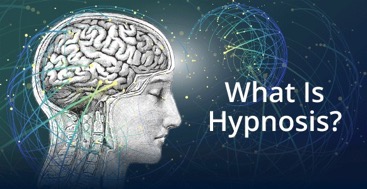Subconscious
What exactly is hypnosis?
21/12/19 12:20 Filed in: Hypnosis

My name is David Faratian. I am a consultant hypnotherapist practising at the Cumbria Hypnosis Mindfulness Clinic and in this article, I would like to explore the fascinating psychology of hypnosis and hypnotherapy and attempt to unravel some of the more common myths. Hypnosis has become well-known thanks to popular acts where people are prompted to perform unusual or ridiculous actions, but, it has also been clinically proven to provide medical and therapeutic benefits, most notably in the reduction of pain and anxiety. It has even been suggested that hypnosis can reduce the symptoms of dementia. When you hear the word hypnotist, what comes to mind?
If you’re like many people, the word may conjure up images of a sinister stage-villain who brings about a hypnotic state by swinging a pocket watch back and forth. While hypnosis is often described as a sleep-like trance state, it is better expressed as a state characterised by focused attention, heightened suggestibility, and vivid fantasies. People in a hypnotic state often seem sleepy and zoned out, but in reality, they are in a state of hyper-awareness. In psychology, hypnosis is sometimes referred to as hypnotherapy and has been used for a number of purposes including the reduction and treatment of pain. Hypnosis is usually performed by a trained therapist who utilises visualisation and verbal repetition to induce a hypnotic state.
So what can hypnotherapy help with? Often hypnotherapy is seen as the magic bullet for dealing with smoking cessation and weight loss. While this is partially true, what people may not always realise is that hypnosis has applications far more far-reaching and effective for a wide range of limiting beliefs, behaviours and emotions, including generalised anxiety disorders, OCD, ADHD, IBS, PTSD, Panic attacks, and even some forms of chronic pain. Often hypnotherapy can be a powerful ally for conventional medical treatments as it empowers self-belief and the ability for the client to heal themselves. Essentially the hypnotherapist acts as a bridge between the issue being dealt with and the part within capable of learning and making changes, namely the subconscious mind. If this brief introduction has piqued your interest and you would like to learn more about how this approach may offer a solution to a long-standing issue which has not been effectively dealt with yet, then find out more by reading the rest of the information on this website.


